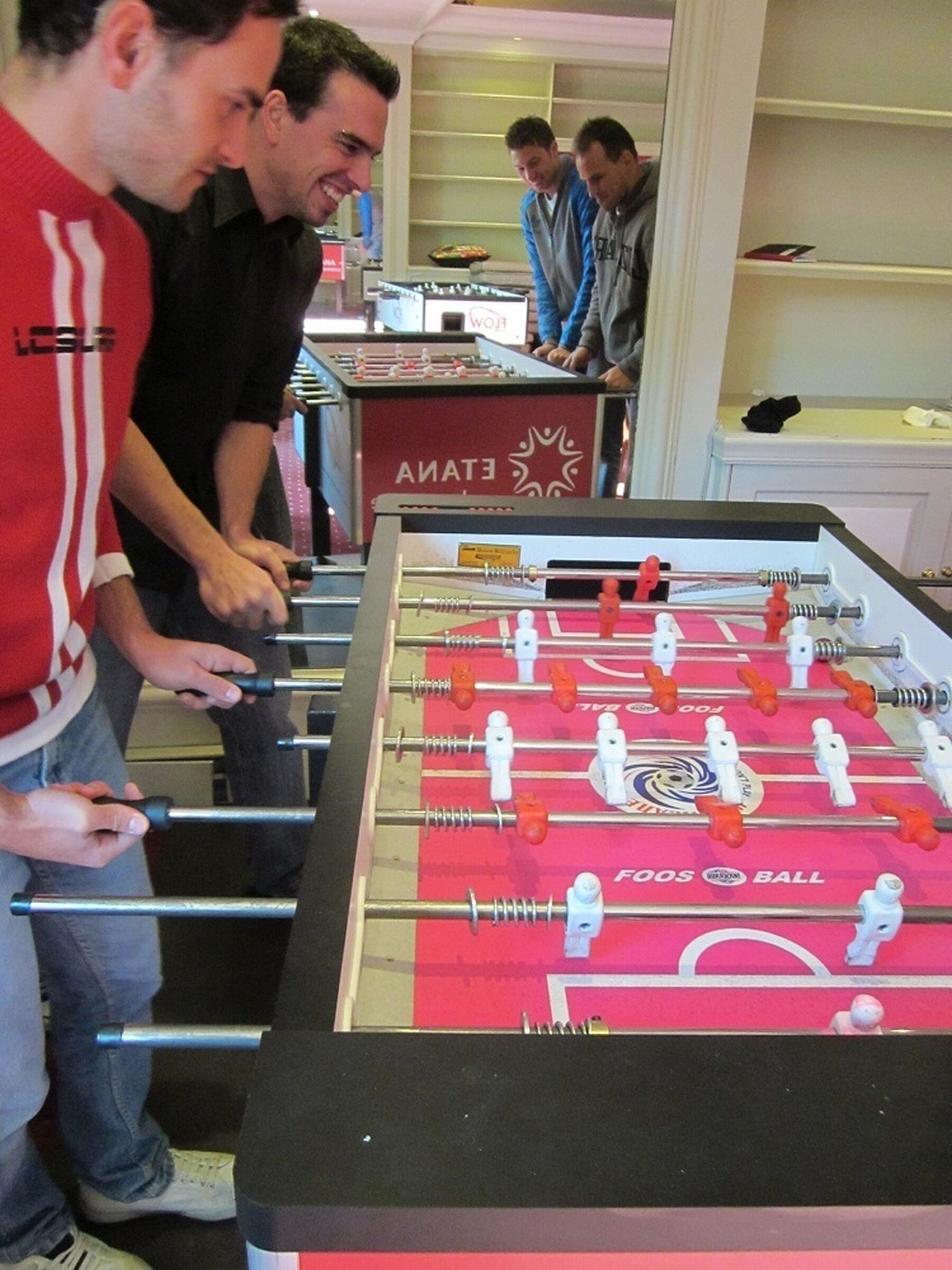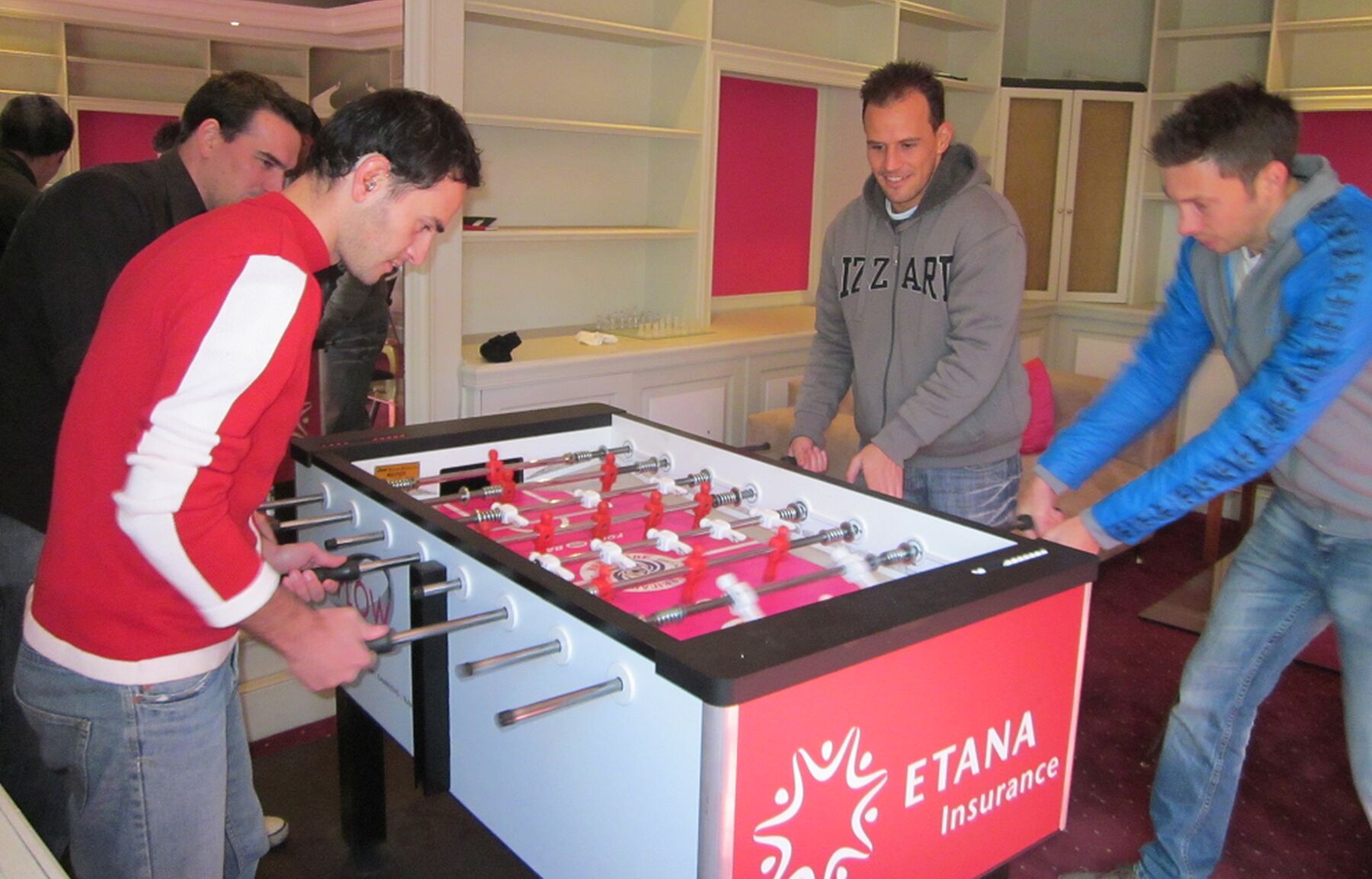Most days, the brain cogs of the Flow staff can almost be heard whizzing away, and an illustrator would probably be able to draw the steam escaping from our ears. With all of our creative engines revving at full speed, we need to make time to cool them down. When a Flowstar is about to overheat, what is there to do but make his or her way to the foosball table? The beautiful game is part of Flow Johannesburg’s culture, but how did it come about?

The name foosball originates from the German word for football, fussball, but it is also known as bar football and footzy, among others. In South Africa another popular name for foosball is ta-ta box. We can thank Harold Searles Thornton and Tottenham Hotspur F.C. for this fantastic game. According to Wikipedia, the Brit conceived of the idea while watching a Spurs game and laid out his first plans using a box of matches. Table football was patented in the United Kingdom in 1923.
For those of you who have not yet had the blessed experience of participating in or watching a game of foosball, here is a brief explanation of how the game is played:
One or two human players position themselves on either side of a smallish table that looks like a box. Each player is in control of several small foosball men who are attached to horizontal poles, the handles of which protrude from the side of the box so that the players can move their foosball men from side to side and rotate them so that they can kick the ball. The object of the game is to score goals by using your miniature player to push the ball into the opposing goal.
Today, foosball is popular all around the world, and there is even an International Table Soccer Federation (ITSF) which regulates international competitions and the official rules. The foosball commonly played in pubs, schools and workplaces (that means you, Flow) often has few rules, which are agreed upon mutually by the players.
Foosball has become extremely popular at Flow, even CEO Tara Turkington and MD Tiffany Turkington-Palmer have been known to take on a challenge at the table.
George Xafis, an avid Flow foosball player, says he plays the game because “it is enjoyable and you can create intricate and technical plays”. Laura Maggs, who represents the Flow females in this rather male-dominated sport, says: “Sometimes, I think that the guys are a bit scared to play against me because they’re afraid to be beaten by a girl (which happens all the time)”.
However, Stuart Dickinson, another foosball fanatic, seems undaunted by Laura’s competitive streak, saying, “We have a healthy foosball culture at Flow, but, being one of the best foosball players in the world, I tend to get a bit bored with the competition here. Guys like Ryan Levenson, George and Marco Camacho try to keep up, but ultimately I end up crushing them…” In contrast, Marco considers the competition at Flow fierce. He considers Stuart and Matt van Onselen to be his biggest rivals, although he does say that Flowstars enjoy foosball so much because it’s “just a fun game”.
Foosball will celebrate its 90th birthday in 2013, so up your game Flowstars and lead foosball into its 90th year with dignity.

